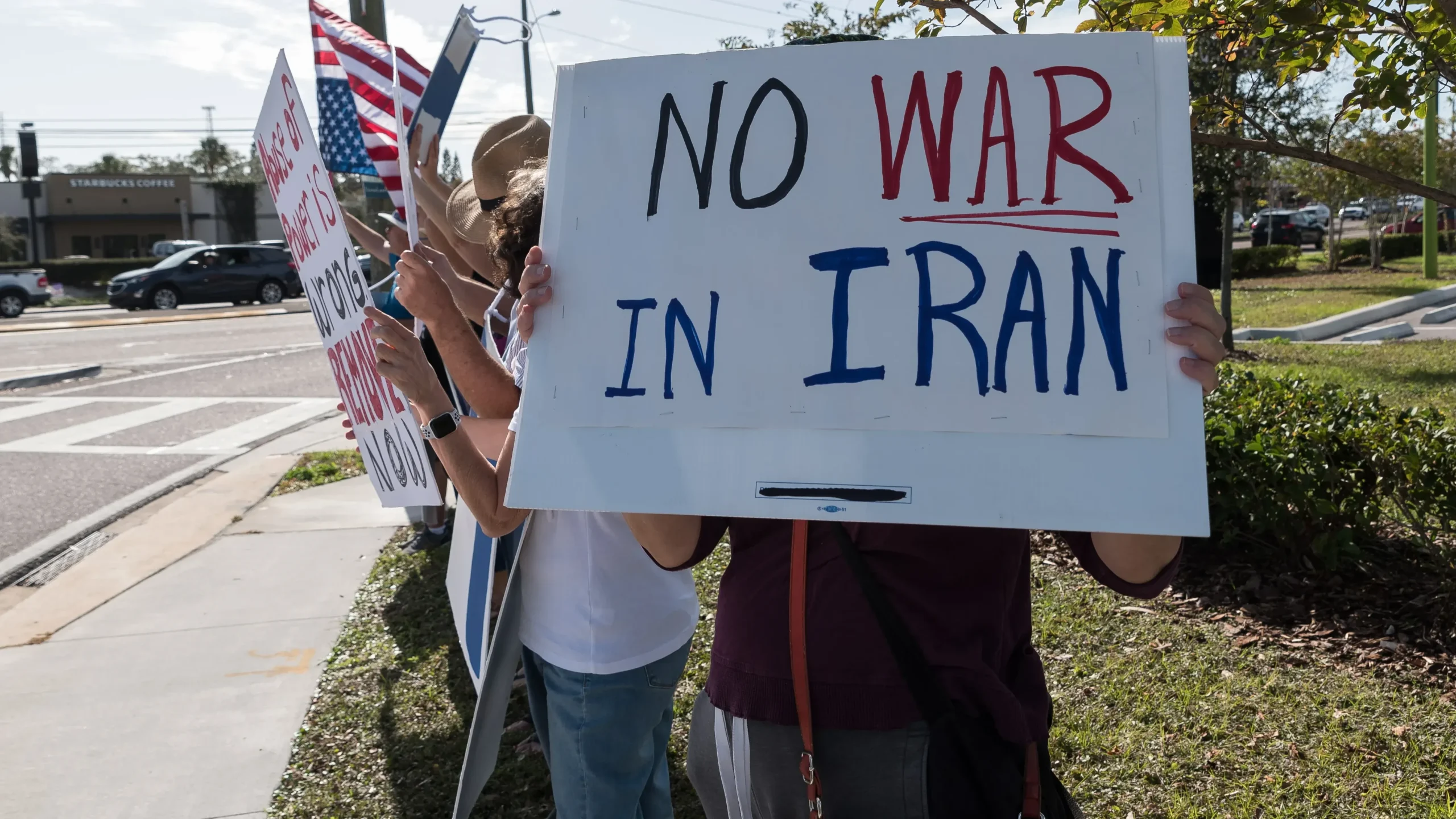Sixty percent of US citizens are against military involvement in the Israeli war on Iran, with only 16 percent in favor, and 24 percent undecided, according to an Economist-YouGov poll published on 17 June.
Opposition spans the political spectrum, with 65 percent of Democrats, 61 percent of Independents, and 53 percent of Republicans rejecting US intervention.

Despite this, half of the respondents still view Iran as an enemy, while 25 percent consider it unfriendly, and five percent say it is either an ally or friendly.
Among those who voted for US President Donald Trump in the 2024 election, 53 percent say the US should stay out of the war, 19 percent support involvement, and 28 percent remain unsure.
Trump has remained central to the ongoing debate over how to approach the war, with several options under consideration, including the assassination of Iranian Supreme Leader Ali Khamenei, a forced regime change, and strikes on nuclear facilities using advanced bunker-busting munitions.
Despite the high stakes, a recent Morning Consult poll shows that only 23 percent of US voters could identify Iran on a map, underscoring the disconnect between public opinion and the geography of the war.
A March poll conducted by Gallup reflects a broader shift in US public opinion on the region, with support for Israel collapsing as sympathy for Palestinians steadily climbs amid the ongoing war.
Since the start of the war on 13 June, Iran has launched waves of ballistic missiles at Israeli cities and infrastructure in response to Tel Aviv’s surprise strikes that killed senior commanders, scientists, and civilians.
Israeli Prime Minister Benjamin Netanyahu told ABC News on 16 June that assassinating Iranian Supreme Leader Ali Khamenei “is not going to escalate the conflict, it’s going to end the conflict.”
He accused Iran of fueling decades of violence and cited the Aramco oil field bombings as an example. Netanyahu described the confrontation as a battle of good against evil, warned that threats against Tel Aviv could one day reach New York, and thanked Trump for his support.
Axios reported the following day that Israeli officials are increasingly debating regime change in Iran. Although not an official war objective, army officers confirmed that growing internal discussions were underway regarding the removal of the Iranian government.
The report said Trump rejected an Israeli plan to assassinate Khamenei but remains open to “some gigantic action.” It also noted that he left the G7 summit early and warned residents of Tehran to evacuate, fueling speculation of a US strike later denied by the White House.
Amid these developments, Iran’s Ambassador to the UN Ali Bahreini warned that Tehran will respond “seriously and strongly, without restraint” if the US directly joins the war.
“If we confirm America’s [direct] involvement in the attacks against us, we will respond,” Bahreini said in Geneva, adding that Tehran already views Washington as complicit in Israeli actions.
His remarks came as Israeli media reported that the US is expected to participate in any potential strike on Iran’s Fordow nuclear facility.
CBS and Axios said Trump is weighing direct involvement but has not yet made a final decision.


